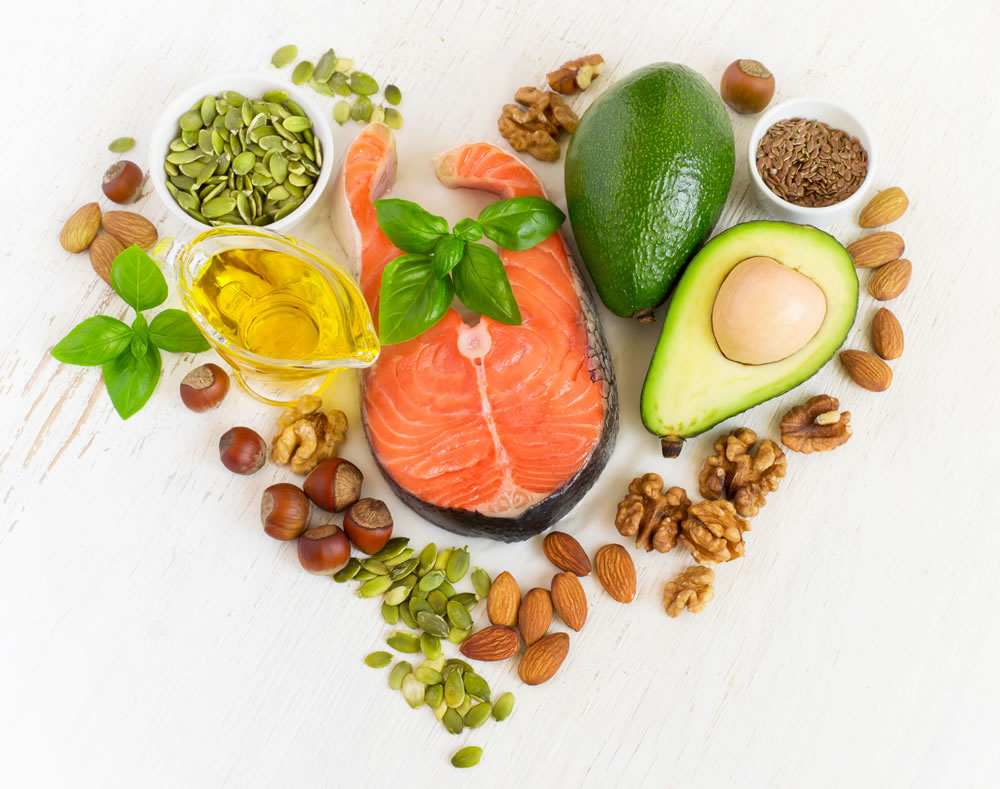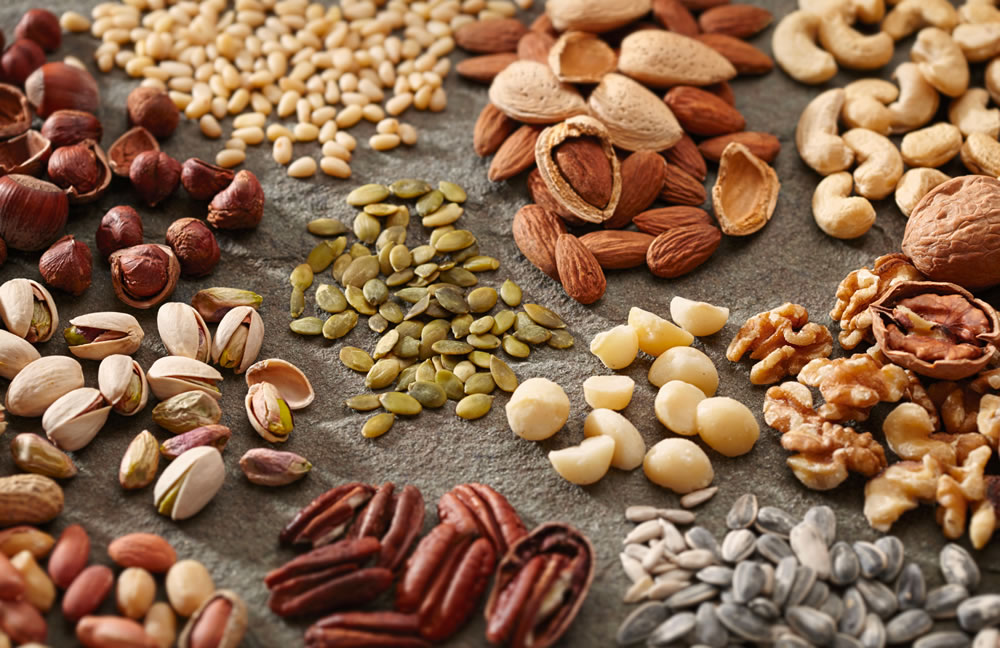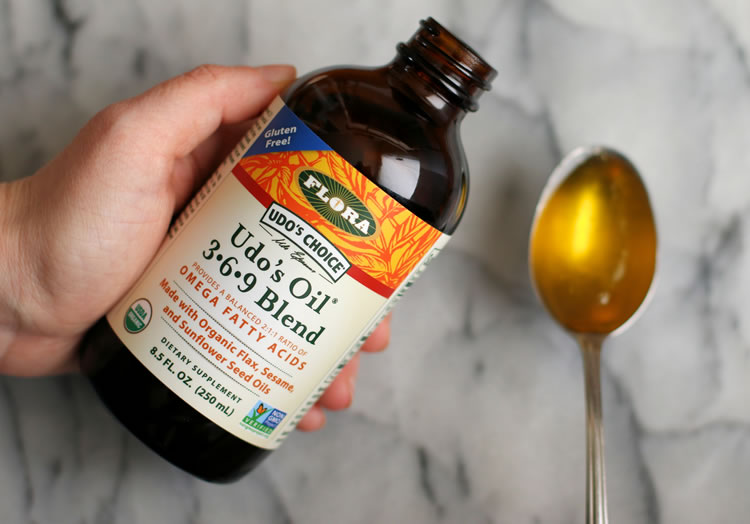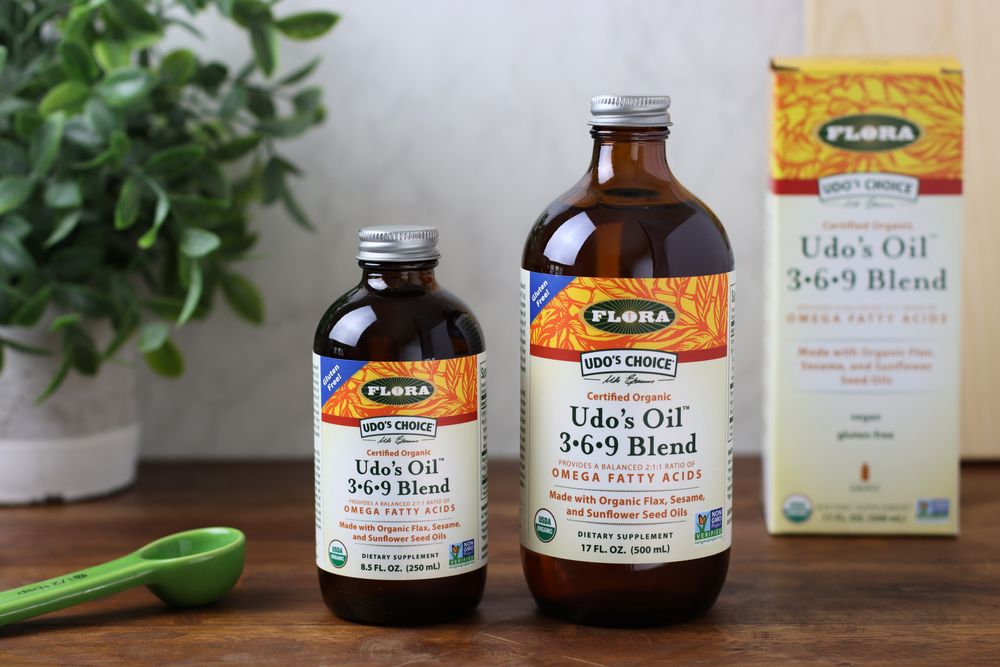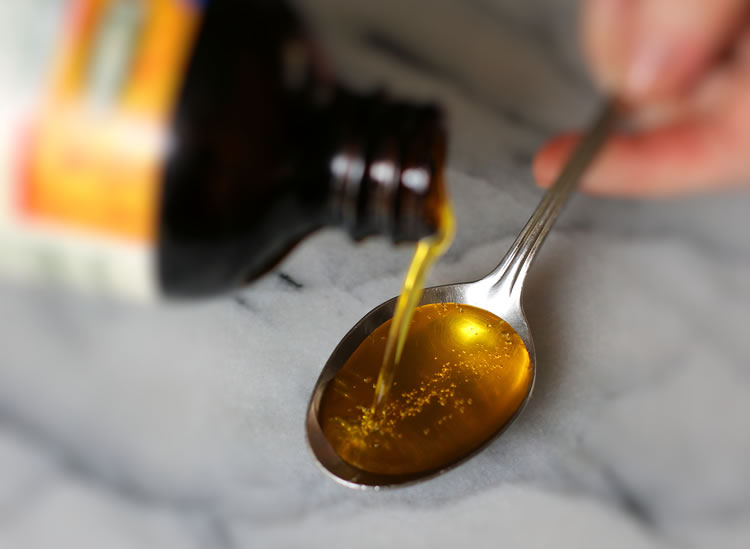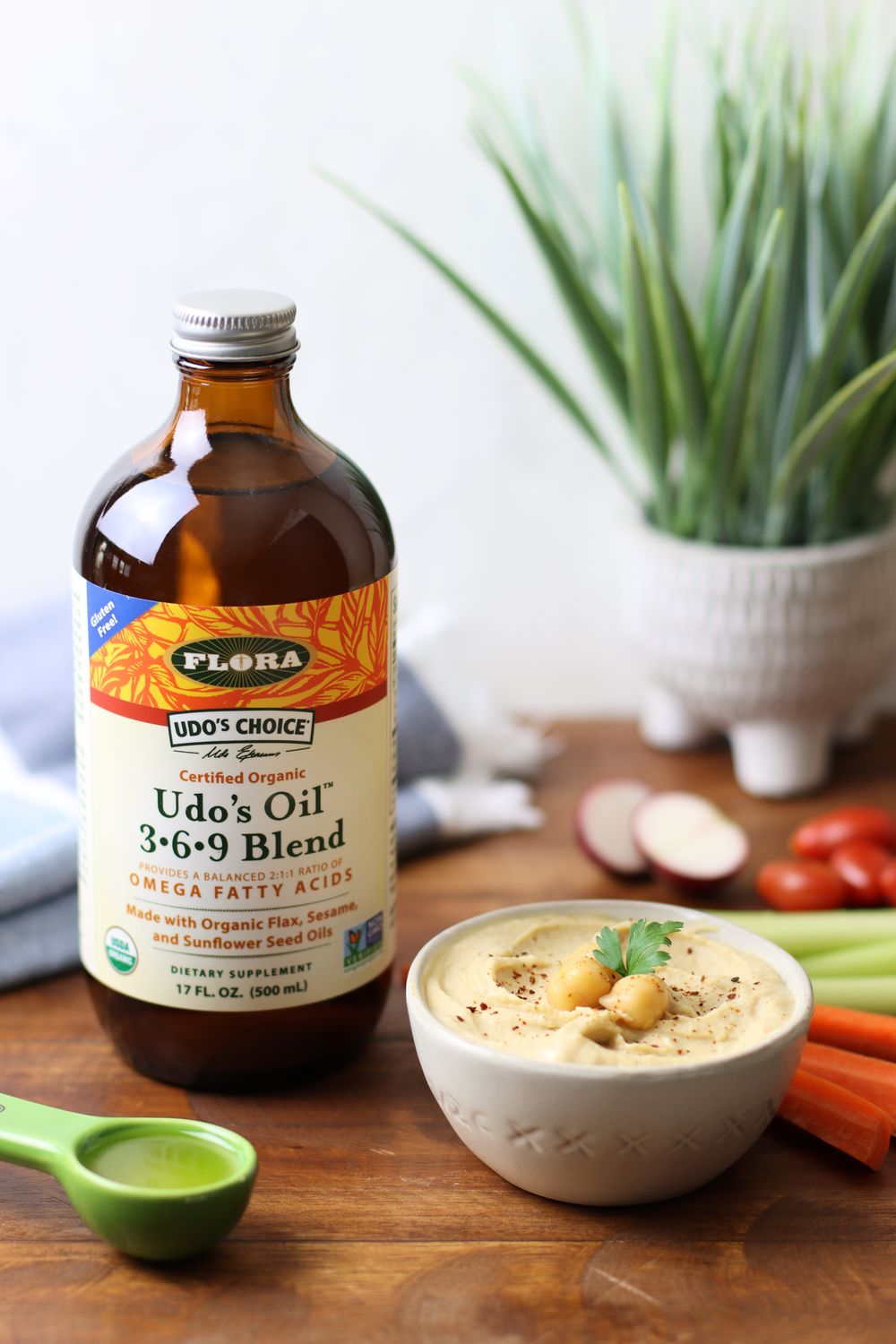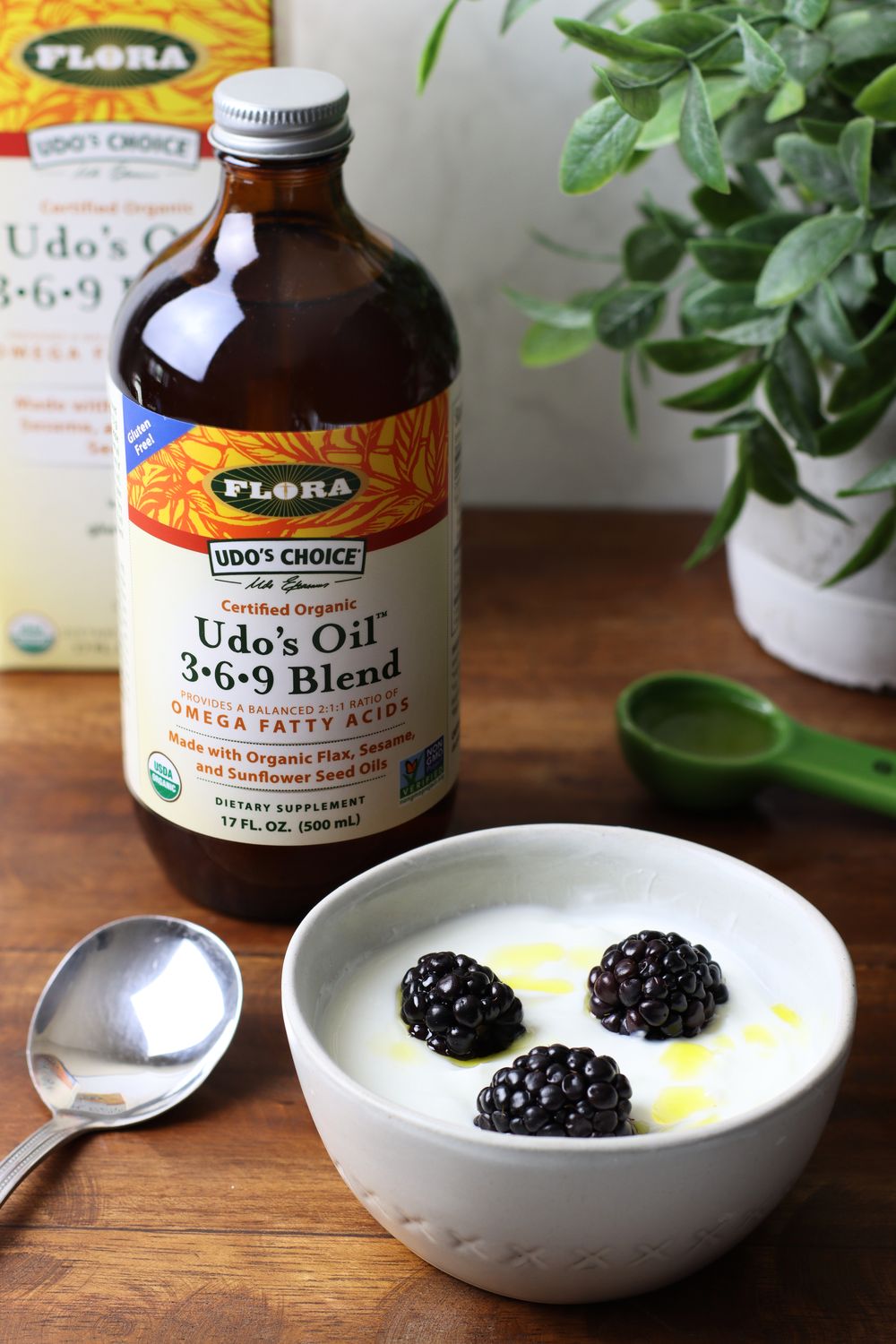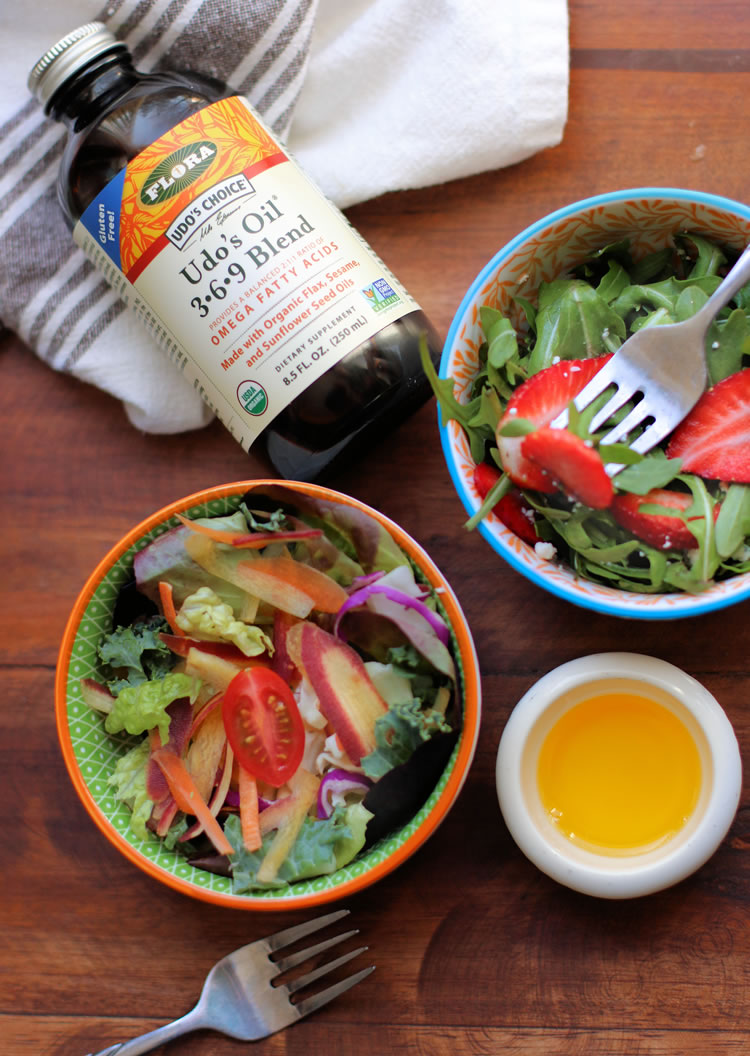After decades of fearing the fat inside our food, science has shown that it’s not fat that’s the problem, but the type of fat we’re eating. [1] In fact, our bodies need fat to survive. Not only is fat an energy source for our cells and brains, it also cushions and insulates our organs, helps us absorb vitamins including A, D, E and K, and has as a variety of other important benefits for our body.* [2]
Some of the most important fats we need to stay healthy are “good fats” called essential fatty acids (EFAs). Essential fatty acids are a type of polyunsaturated fat. Which simply means that these fat molecules have more than one double carbon bond within their fatty acid chain.
There are two types of essential fatty acids: omega-6 and omega-3.
What makes them “essential” though? Our body simply can’t make omega-6s and omega-3s from other fats. Which means we need to get them 100% through the food we eat.
But it’s not enough to simply eat omega-6s and omega-3s. You also have to get them in the right balance for the most health benefits and to keep your engines running smoothly.
Keep reading to see what the benefits of essential fatty acids are, the right balance of omega-6s to omega-3s you should be getting, and how Udo’s Oil 369 Blend from Flora can give you a complete ‘food oil foundation’ for building a healthy body.
But first, let’s learn a little about what omega fatty acids are and what they do in the body.
What Do Omega Fatty Acids Do In The Body?
Omega fatty acids have a variety of benefits! They’re needed for the healthy structure of our cell membranes, healthy cell growth and division, the synthesis of hormones, the clotting of blood, the reduction of inflammation as well as a variety of other important jobs.*
There are 4 types of omega-6 fatty acids:
- LA (Linoleic Acid): The most common of the omega-6s found mostly in nut and seed oils as well as grains. LA gets converted into the other omega-6 fatty acids, gamma-linolenic acid (GLA) and then into arachidonic acid (AA) in the body. [3]
- AA (Arachidonic Acid): AA is an omega-6 obtained from eating fish and poultry or made in the body from linoleic acid. It gets converted into other types of molecules called eicosanoids that work to heal tissues and cells after injury or illness. [4,5]. Too many omega-6s in the body can get converted to arachidonic acid, which can cause inflammation.
- GLA (Gamma Linoleic Acid): Found in borage oil and primrose oil, this essential fatty acid has been shown in studies to support skin and cardiovascular health.* [6]
- CLA (Conjugated Linoleic Acid): This omega 6 fatty acid may be helpful in supporting metabolic health.* [7]
Omega 6 fatty acids are mainly used by the body for energy, but they also are important for:
- Supporting healthy blood pressure and clotting*
- Promoting bone health*
- Immune function*
- Stimulate growth of skin, nails and hair*
- Healthy metabolism*
- Reproductive health*
- Regulating our genes*
There are many types of omega-3 fatty acids. Each is different based on their chemical shape and size.
The most common omega-3 fatty acids are:
- EPA (Eicosapentaenoic acid): This fatty acid is used by the body to produce molecules called eicosanoids, which have a variety of roles in the body and support cardiovascular health.*
- DHA (Docosahexaenoic acid): Important for brain and eye function and health.* Like EPA, DHA is found mostly in fatty fishes but can also be produced by algae. [8]
- ALA (Alpha-linolenic acid): Found mostly in plant-based food this omega-3 fatty acid can be converted into EPA and DHA in the body.
Benefits of omega-3 fatty acids include:
- Promoting cardiovascular health* [9]
- Supporting liver health and healthy metabolism* (10. 11, 12)
- Supporting eye and bone health*
- Can enhance skin health including improving hydration and premature aging of skin* [13]
- Supporting cognitive growth and development in infants and cognitive health in seniors* [14, 15]
What to Eat For the Best Omega Fatty Acid Balance
Researchers believe that our ancestors evolved eating a diet of equal amounts of omega-6 to omega-3 essential fatty acids (EFA), a 1:1 ratio. That means the omega-6s were balanced out perfectly by the omega-3s.
Here’s the bad news: Today if you’re eating a typical American or Western diet you could be getting up to 25 times more omega-6s than omega-3s. A far cry from the 1:1 ratio our cave dwelling relatives were getting. [16]
It won’t surprise you which foods are chock full-of omega-6s in our modern American or Western diets.
High amounts of Omega-6 fatty acids can be found in foods like:
- Seed oils including corn, sunflower, safflower, peanut
- Soybeans and soybean oil
- Grains including wheat, rye, oats, barley
- Meats, dairy, and poultry
What’s incredible is that some seed oils can have as many as 70 times more omega-6s than 3s, potato chips can have 60 times more omega-6s than 3s, grains 20 times more and grain-fed chicken can have 15 times more.
So what do you do?
The key is to limit omega-6 rich processed foods and eat more omega-3 rich foods.
The Best Sources of Omega-3 fatty acids are found in foods like:
- Fatty fish: salmon, mackerel, sardines (EPA, DHA)
- Cod liver oil (EPA, DHA)
- Walnuts (ALA)
- Flaxseeds (ALA)
- Chia Seeds (ALA)
Some of the best sources of omega-3 fatty acids are fatty fish like salmon or cod liver oil.
One 3 ounce serving of salmon can provide about 4.0 grams of omega-3 fatty acids and experts recommend you eat at least 2 servings of oily fish per week to stay healthy. And fats like butter, coconut oil, and olive oil are also low in omega-6.
But what if you can’t eat fish due to allergy or lifestyle choices like vegetarianism or veganism? How do you get your omega-3s?
After years of research, Udo Erasmus an expert on essential fatty acids and author of the best-selling book “Fats that Heal, Fats That Kill,” discovered that over time we get the most amount of health benefits when we eat 2 times as many omega-3s as omega-6s. Not the 1:1 ratio our ancestors were eating.
This is what inspired Udo to create his world renowned omega rich Udo’s Oil 3·6·9 Blend.
It’s a super healthy way to get that perfect 2:1 omega 3 to 6 ratio.
Udo’s Oil 3·6·9 Blend, an omega rich plant-based oil blend is made with:
- Flax oil (omega-3)
- Sunflower seed oil (omega-6 + 9)
- Evening primrose (omega-6)
- Sesame oil (omega 6 + 9)
- Rice and oat germ oil (omega-6 + 9)
- Coconut oil (MCTs, omega-9)
Flaxseed oil is the richest known source of omega-3 in the form of ALA. It has been shown in studies to help promote cardiovascular health.* [27]
With every 1 tablespoon serving of Udo’s Oil you get:
- 6 grams of omega-3 fatty acids
- 3 grams of omega-6 fatty acids
- 2.5 grams of omega-9 fatty acids.
This 2:1:1 ratio of essential fatty acids is crucial for optimal health needed by every cell in the body. And Udo’s can give you the good fats you need without any of the bad.
Where does the “9” come in the Udo’s 3·6·9 Blend?
Udo’s Oil also includes omega-9s in the form of oleic acid. Omega-9 is a nonessential omega fatty acid, which means the body can make it on its own. But omega-9s are still incredibly beneficial.
Some benefits of Omega 9’s include:
- Energy and positive mood*
- Immune health benefits*
- Cardiovascular health benefits*
- Supporting skin health*
When supplementing with omega-9 fatty acids be sure to find a formula like Udo’s that has omega-3 fatty acids as well.
Udo’s Oil 3·6·9 Blend is:
- High-quality, fresh pressed, and unrefined.
- Certified organic and sustainably sourced
- Non-GMO
- Free of fish and dairy
- Gluten-free
- Kosher
Udo’s is 100% plant-based and vegan-friendly!
Why Look For a Plant-Based Omega-3 Formula?
Besides an allergy to fish oil, concerns about global overfishing and fish oil supplements being contaminated with high levels of mercury are all reasons why someone would seek out a plant-based omega-3 rich supplement.
For many of us, fish oil is just too hard to digest. What’s even more unnerving is that recent studies have even shown that many fish oil products are failing to provide the amount of omega-3s that are claimed on the label. [17] That’s why Udo’s 3·6·9 Blend makes a great choice.
Plus, all the oils in Udo’s Oil 3·6·9 Blend are made with sustainable ingredients and packaged in a dark, environmentally friendly glass bottle so the delicate oils stay fresh, unlike many of the omega-6 based oils at the grocery store.
It’s all the good fats you need, without any of the bad fats you should avoid.
How to Use Udo’s Oil 3·6·9 Blend
Udo’s Oil is a raw oil that can be drizzled onto all your favorite foods everyday as a substitute or complementary daily source of fat.
It’s perfect for using as a base for salad dressings or adding to your daily smoothie or protein shake.
It can also be drizzled or added to warm foods, but Udo’s Oil should never be used for cooking. The heat can destroy the very fragile fatty acids in this blend.
You can also use Udo’s 3·6·9 Blend:
- In oatmeal, overnight oats or morning cereal
- Drizzled over steamed vegetables, salads, rice, pasta or potatoes
- Drizzled over hummus, dips or yogurt
- Spooned onto soups just before serving
- Blended with spices as a dipping oil for bread or veggies
- Added to pesto, chimichurri, salsa or tapenade
With a pleasant and mild, nutty, buttery taste it’s really delicious and pairs well with just about anything.
Final Thoughts
One of the best ways to support your health is by getting the right balance of omega fatty acids in your diet. Most of us need to start by getting more healthy omega-3s.
Not only are all the oils in Udo’s Oil 3·6·9 Blend good for cardiovascular health*, but the blend also contains those much-needed omega-3s, -6s and -9s in just the right 2:1:1 ratio so your body gets the most benefits in a plant-based formula.
➡ Visit FloraHealth.com to try Udo’s Oil 3·6·9 Blend today!
*These statements have not been evaluated by the Food and Drug Administration. This product is not intended to diagnose, treat, cure, or prevent any disease.


